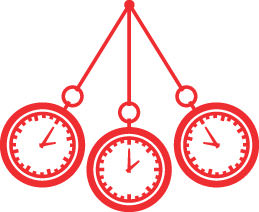CHAPTER SUMMARIES

When you dream, your brain continues to think, and in some ways it thinks better than when you’re awake—particularly in terms of visual problem-solving. Your sleeping brain stops censoring your thoughts, which allows your creativity to expand. This is why so many inventors, scientists, and artists have discovered breakthrough solutions while dreaming. Anyone can learn to direct their dreams. Practice programming your mind to work for you while you sleep.

The kind of visualization that’s been proven to work is a form of highly focused mental practice that includes multiple senses—for example, sight, hearing, touch, and kinesthesia. This activates synaptic connections throughout the brain and body, forming strong neural maps for success. Visualization can be used to improve all sorts of skills, including athletic and musical performance, as a complement to quality training. To start with, choose one skill to improve by adding daily visualization to your practice. Soon you will be amazed by your results.

The limbic system—your brain’s processor of emotions—responds powerfully to whatever you see, even when you don’t consciously realize it. Images often go straight to the subconscious, influencing your mood and behavior without your conscious consent. Exploit this fact by taking in images that elevate your well-being.

Science has rescued hypnosis from the fringe, finding it to be a reliable tool for fixing a wide variety of problems and for generating improvement across numerous areas. Much of the research has been in health care, where studies show that hypnosis can help people to kick bad habits, reduce bodily pain, speed up physical healing, enjoy better sex, and more. Scientists still don’t fully understand hypnosis but because the science proves its power, the most highly respected medical institutions advocate its use. It’s also the secret to success for many top athletes and other performers. Feeling frustrated with some aspect of your life? Try hypnosis.

Every human culture ever known has told tales, and now research confirms that they influence our brains far more deeply than do dry facts. This is why our inner autobiographies greatly affect our confidence and well-being. So consider what yarn you’re currently spinning about yourself. Is your self-story sabotaging or serving you? Most likely, you can revise and improve your story, so that your story improves you.

Because of how the brain works, attempting to suppress negative thoughts tends to create more of them, due to what scientists call ironic rebound. So it doesn’t help to berate yourself (or anyone else) for negative thinking. On the other hand, we can direct our minds toward more positivity. In fact, by reading this book you’re doing just that—congratulations! The so-called law of attraction, which holds that the universe directly responds to our thoughts, is a spiritual belief, without scientific basis in quantum physics … but, hey, it could turn out to be true. The mere fact of our existence offers innumerable grand mysteries that science has yet to solve.

All animals have an innate need to make choices. Research shows that being robbed of choice thus typically leads to an earlier death. Among humans, the act of choosing tends to uplift and invigorate us. Look for opportunities to make your own decisions about things that matter to you, big or small. Also, practice recognizing the choices you already are making. And, if ever you feel overwhelmed by too many options (choice overload), first narrow their number—six or fewer is a good bet—before making your selection. In the end, whether you feel out of control or in command of your own life is up to you. So choose!

To help us survive in the wild, our brains evolved a tendency to focus on the negative. But this negativity bias no longer serves us—especially when research shows that optimists outperform pessimists, and that successful romantic relationships require at least five times as many positive to negative interactions. The solution? Consciously commit to positivity. Aim up. This means disputing your own overly negative beliefs, and it also means buoying up other people. Stop criticizing and start encouraging! Aim your goals up as well. Focus on what you do desire, and set the bar high.

Economists used to believe that we human consumers were rational beings who could be counted on to act in our own best interest. But now, neuroscience shows that almost no one makes purely logical judgments. Subconsciously, our thoughts and feelings remain interdependent, each influencing the other. While it may be wise to “simply follow your heart” or “just trust your gut” in some social situations, don’t let your euphoria buy real estate or play the stock market. Financial decisions, in particular, call for a calm, risk-conscious mindset.

Recent studies prove that neurologically, your body language doesn’t merely reveal thoughts and emotions, it also creates them. Good posture increases self-esteem. Smiling boosts your sense of humor and emotional well-being. Nodding your head leads to liking. Don’t let a difficult day impair how you carry yourself. Instead, adjust your body to improve your mood. (P.S. Having trouble understanding how someone else feels? Adopt their body language to instantly “get” it.)

From boosting student test scores to creating healthy new brain cells in old age, physical exercise strengthens neural connectivity. It’s a scientific fact: Exercise makes you smarter. Working out also harmonizes the Big Three neurotransmitters targeted by most antidepressants—norepinephrine, dopamine, and serotonin—meaning exercise makes you happier, as well. To be truly Self-Intelligent, get your body moving.

While scientists still don’t know exactly why we humans—and apparently all animals—must sleep to stay alive, they have determined that the great majority of us need at least seven or eight hours’ nightly sleep to maintain optimal intelligence. When awake, your brain functions much better if you’ve gotten a good sleep, partly because when well rested, you metabolize more glucose. Perhaps more astounding, your sleeping brain does a whole lot of thinking that supports learning and memory. Recent research shows that getting ample sleep makes you smarter, healthier, younger-looking, and even slimmer. Say no to sleep macho! Make a self-commitment to get the rest you need to do and be your best.

To thrive, you need other people. Chronic loneliness and social isolation can weaken your immune system, impair brain function and shave years off your life. What matters most is how you feel and think about your relationships. At the same time, research shows that by expanding your network—that is, by playing more social roles—you can protect your inner sense of connection. Your inner and outer social experiences each reinforce the other, creating a snowball effect. So practice improving your social mindset, then use that positive attitude to reach out to good people to strengthen your circle. You’ll be far better off—happier, healthier, and probably wealthier.

Laughter’s primary purpose is social connection. Indeed, most of the time, what prompts laughter has nothing to do with humor, and all to do with bonding. The neurological mechanisms for this lie deep within the brain, indicating that laughter plays a part in our very survival. In this, we’re not alone. Other critters laugh too, including our closest relatives, chimpanzees. So please don’t make the understandable but misguided mistake of refusing to laugh at the unfunny. Be an easy laugh, and your life will be easier too.

Playing is how we most joyfully bond with others. This begins in infancy, when mother and baby spontaneously interact, syncing their brain waves in emotional attunement. Later, as youngsters, playing freely with peers builds healthy brains, fostering both Self-Intelligence and social intelligence. Kids who are forbidden to play likely will develop interpersonal problems later on, possibly leading to criminal behavior, including murder. For families, friends, or couples to maintain joyful closeness, they must find ways to play together. So practice letting go of old inhibitions in order to rediscover your innate playfulness. Invite others to play along with you. Share the joy!

Misunderstandings plague men and women because of their distinct attitudes toward independence-versus-connection. Typically, men value independence more highly, while women treasure connection. Evolution may have wired in this difference so that primitive men and women would survive danger—men by fighting or fleeing, and women (often with children in tow) by seeking help. Today this shows up in males’ fight-or-flight response to modern stress, versus women’s inclination to tend-and-befriend. Meanwhile, at least in the United States, most males and females grow up learning virtually opposite communication goals—again, differing around the issue of independence-versus-connection—so that women in conversation tend toward consensus and similarity, while men often compete for dominance. Use this knowledge to foster flexibility within yourself and to connect more effectively with everyone in your life.

“Why” is one of the most powerful motivators we can use to achieve our goals. We’re hardwired to want reasons for what we do or don’t do. As long as we understand how the brain works, we can harness the power of “why” to our benefit. But because our talkative left brains will actually invent reasons “why” or “why not” out of thin air, sometimes the wrong why’s can steer us off track. We humans long to lead meaningful lives, so one effective way to achieve your goals is to access your deepest why-to’s. It also helps to focus on why you can succeed. The science can seem complex, so use my easy “3-D Why-Finder” to find your way around Why.

Scientific studies of talent indicate that it’s a myth. Superstars in any field may appear to succeed effortlessly, but that illusion results from years of training. Moreover, a belief in talent can actually sabotage success. Praising “talent” instills a harmful fixed mindset, while praising effort plants a growth mindset, which leads to achievement. When praising yourself or others, forget about supposedly innate traits such as talent or intelligence. Instead, celebrate the effort people make and the good strategies they employ. Praise not what people are but what they do.

Beware of lulling yourself into inaction by overdiscussing what you should do. Unfortunately, that can trick the brain into believing you’ve already done it. Condition your synapses to be action-oriented by developing an action habit. Talk less, do more.

It may seem natural to beat yourself up when you make a mistake—but please resist the impulse. Feeling ashamed can trigger the what-the-hell effect, which leads to self-sabotage. Instead, forgive yourself. This will energize you to forge ahead to achieve your goals. It will also lead you to be kinder toward others, thus improving your personal and professional relationships.